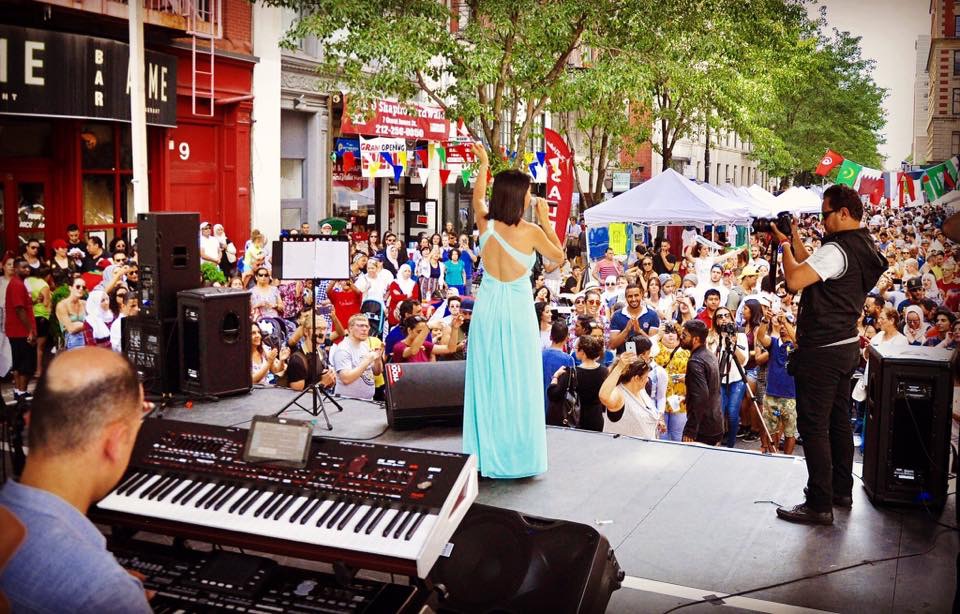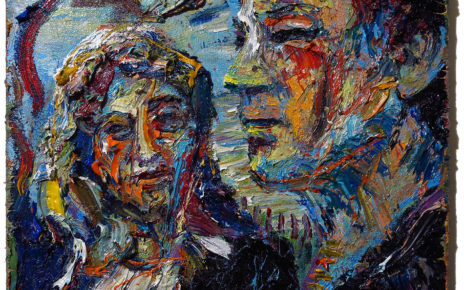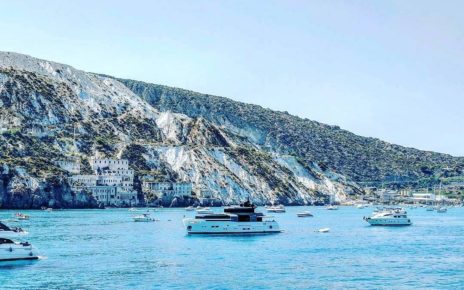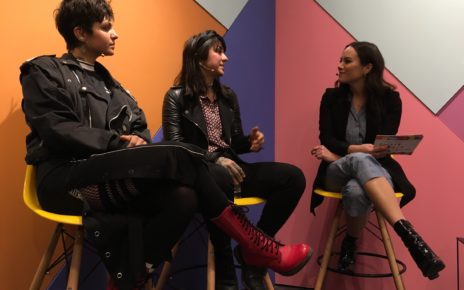“ I realize that coming from an Arabic culture – I can make use of my language and culture. To create something worldly – cosmopolitan. Living and performing in New York City – I am compelled to bridge Arabic and American cultures”
An elegant embodiment of World Music herself— Nadwa Rifai is a Lebanese-born singer, actress and vocalist who epitomizes Fractyll in every shape way and form. A kaleidoscopic blend of Eastern and Western cultures, the modern and the classic, she recently serenaded us all at a garden party in Chelsea. Accompanied by oud, tambourine, and snake charmer amid fire torches, her versatility constantly refreshes itself, most recently as Nadwa and her Ensemble. Having lured many of her fans to venues like 3squared, Al Bustan, and Casa La Femme – Nadwa is always sizzling at the seams where one culture meets another: Fractallizing.
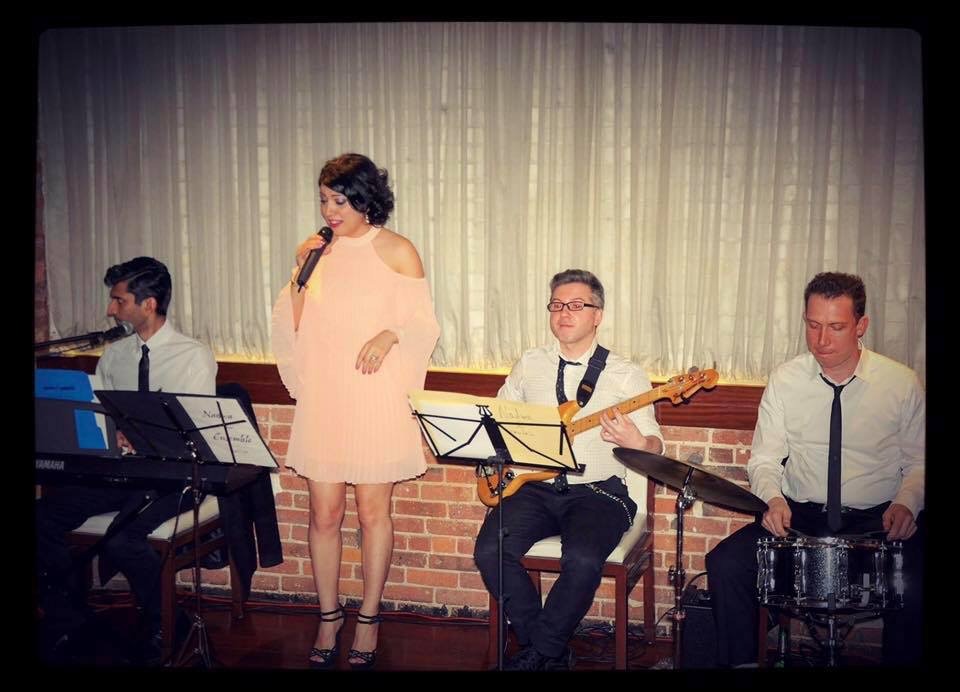
Albeit through different languages and new instruments, she manifests World Music as a sort of رسالة risalla ‘letter’ or message that cultivates ‘world peace’. Starting her own band has been a حصيلة السنين haseellat al saneen, or ‘residue of past experiences’ that derive in part from the city’s hip gallery scene and exclusive rooftop parties, but also from the solitude and peace of New York’s sublime natural landscapes.

Essentially trained as an actress in college, Nadwa recalls singing at home a lot as a child. “It was something that made me feel good and I was interested in observing singers singing and practicing their songs”. She particularly adores Fayrouz’s poetic seances and ماجدة الرومي Majida al Rumi’s operatic voice. “I would be very ‘precise’ about the songs I emulated,” she notes— hence her reputation as a singer who ‘never sings off-point’.
“What brings me to World Music is my pure enjoyment of beautiful vocalizations, be they Arabic or English.”
In college she performed with two huge bands, or ‘orchestras’ composed of a variety of instruments. One band, لبنان بعلبكي Lubnan Balbakee, head by the philharmonic orchestra in Lebanon, consisted of 60-70 musicians. The other, Orchestra of the Lebanese University, head by her singing professor, invited her on board.
“At college in Beirut, I studied acting, a big portion of which is focused in/on the VOICE,” she notes. The concerts, which took place at Unesco Palace in Beirut, were an eye-opening experience for Nadwa. She discovered a gift for voice projection and precision. Nadwa went onto specialize in beautiful, flavorful أُذُن موسيقية Udhun museeqea or ‘Eastern music’ at the Lebanon Conservatory. Trained on classical piano, she learned vocals or ‘vocalese’ (thru which the voice expands with the piano). It is here where she also focused even more intensely on the vocal – how to talk, how to pronounce, how to تجويد tajweed (reading less focus on Quran).
“I was saturated with art, having graduated from the fine arts college.”
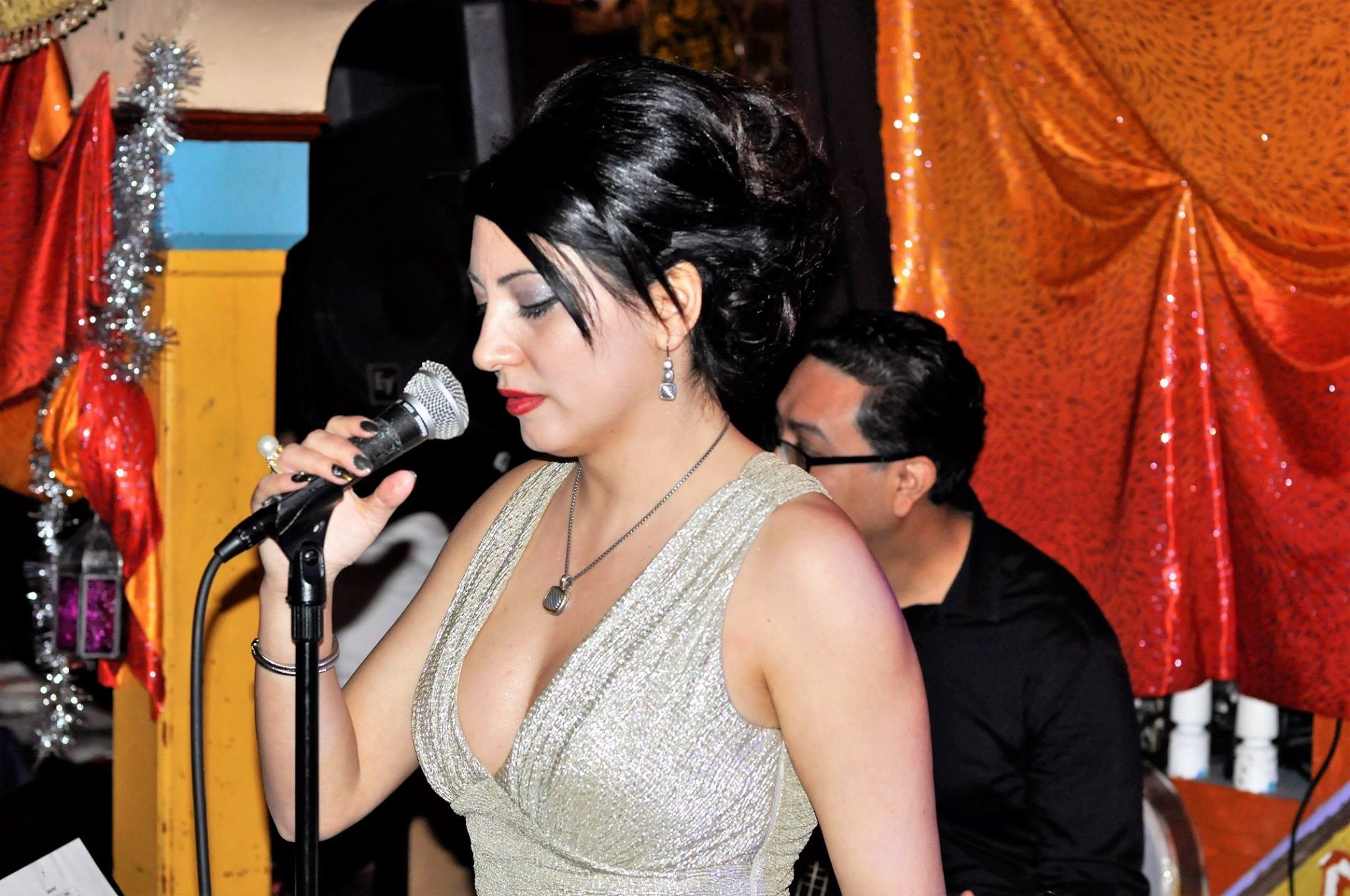
Theater remains at the interdisciplinary core of Al-Rifai’s exposure to the art world. In this manner, accustomed to dancing, acting, and directing on stage – Nadwa worked as a television actress, a host for a Lebanese show; a video screen operator, and assistant director.
“To be able to be a non-American and here and making a mark—is what I truly enjoy.”
Nadwa did a lot of voice over work in the US. Admired for her soothing voice too, she worked in an Arab-American show as a producer, writer and performer. She eventually joined the Arabic Music Orchestra. Performing Arabic Nights subsequently instilled in her the confidence to entertain, and to explore what truly constitutes music to her, instrumentally, vocally, and environmentally.
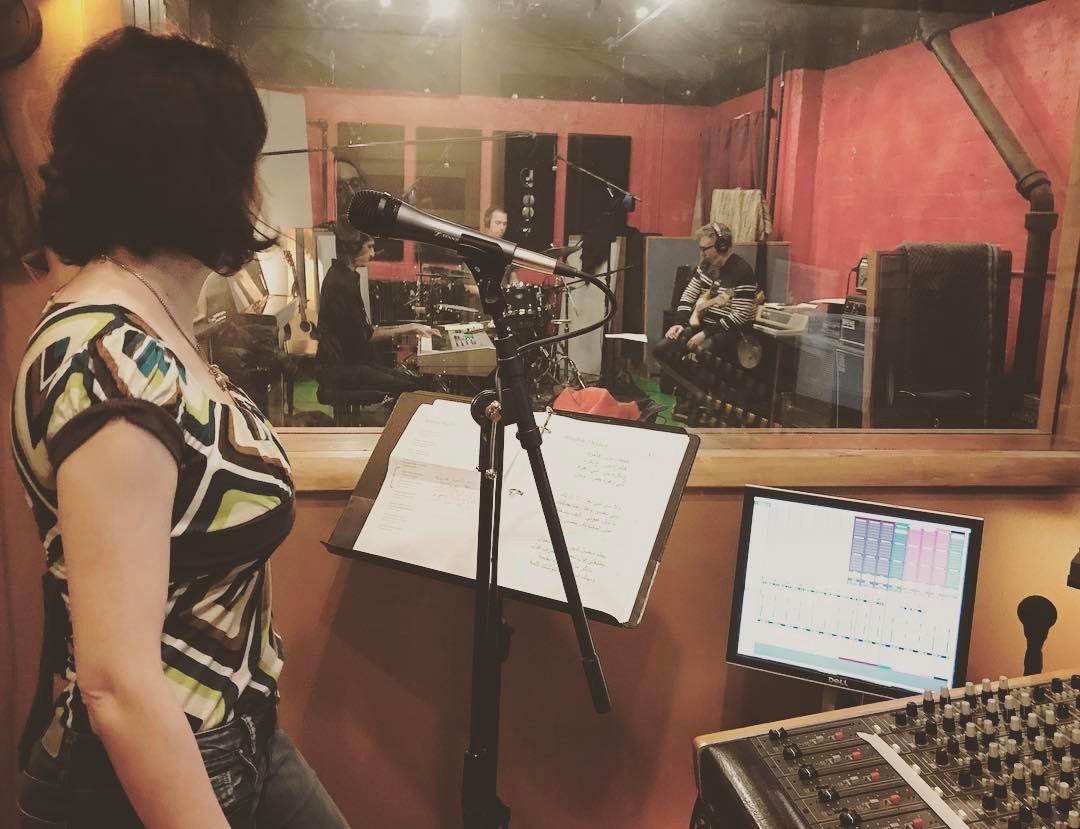
Atlas Soul was the first band Al-Rifai joined in the US. Her hit song “L’amour En Banlieue” won the Global Rhythm Magazine award among others. She went on to have fully mixed, recorded, and mastered four other songs with her World Music Ensemble.
Humanitarian, artist, model and mentor, the possibilities for Nadwa as well as for her Ensemble remain as endless as the paths they musically tread. Re-fining her soothing vines, into fine wine everyday, Nadwa is never ungrateful to the people who challenge yet assist her—she simply “realizes their limitations”: “Some may be more creative—- but I can’t necessarily make music with them,” she says. Meanwhile, supplying her musicians with ذخيرة dhakheera ‘inventory of music’, she expects a lot but undoubtedly gets better with time.
“People love our music. I see it in their eyes—and so I only strive to give back.”
http://www.nadwarifai.com/music.php
